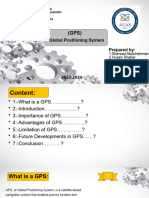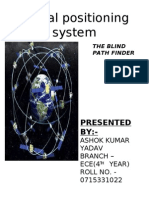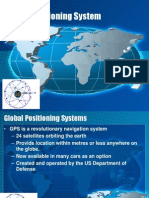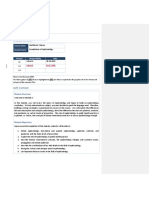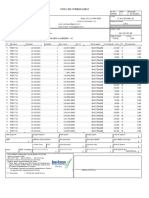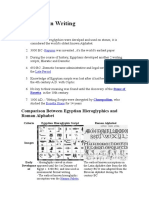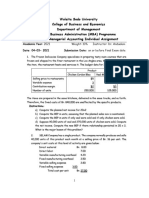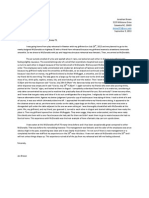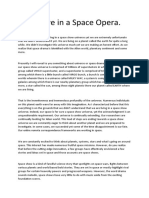0% found this document useful (0 votes)
25 views3 pagesMYP 1 Maps & Mapping - GPS
The Global Positioning System (GPS) is a satellite-based navigation system that provides precise location and time information globally, significantly enhancing navigation, travel safety, emergency response, and outdoor activities. While GPS offers numerous benefits, it also presents challenges such as reliance on satellite signals, power consumption, privacy concerns, environmental impact, and costs. Overall, GPS has transformed daily life but requires responsible use to mitigate its drawbacks.
Uploaded by
sj21.kkgibCopyright
© © All Rights Reserved
We take content rights seriously. If you suspect this is your content, claim it here.
Available Formats
Download as DOCX, PDF, TXT or read online on Scribd
0% found this document useful (0 votes)
25 views3 pagesMYP 1 Maps & Mapping - GPS
The Global Positioning System (GPS) is a satellite-based navigation system that provides precise location and time information globally, significantly enhancing navigation, travel safety, emergency response, and outdoor activities. While GPS offers numerous benefits, it also presents challenges such as reliance on satellite signals, power consumption, privacy concerns, environmental impact, and costs. Overall, GPS has transformed daily life but requires responsible use to mitigate its drawbacks.
Uploaded by
sj21.kkgibCopyright
© © All Rights Reserved
We take content rights seriously. If you suspect this is your content, claim it here.
Available Formats
Download as DOCX, PDF, TXT or read online on Scribd
/ 3












